Professor Spotlight: James West
Dr. James P. West is professor of economics and business. He received his B.S. from Marquette University in Milwaukee, WI, before travelling to India. He then received a Master of Commerce degree from University of Poona in Maharashtra, India, before returning to the U.S. and earning both his MBA and Ph.D. in economics and business from Lehigh University. He started teaching at Moravian in 1989.
What inspired you to go into your field of study?
As an undergraduate my favorite courses, interestingly enough, were in English literature, but business and economics seemed to be a more practical choice for the career plans I had at that time. Post-graduation, I took to travelling around the world and circumstances led to a job offer in India on an economic development project, and it was in India that I really decided I wanted to pursue graduate studies in economics. The economy [of India] was very poor and seemed to not be changing, and that raised a question in my mind: “What’s going on in India?” So, I started studying economics more seriously and understanding the problems of economic development and poverty.
What research are you currently working on?
I’ve done diverse research in a lot of different areas, but the last two papers I wrote went back to my interests in India. Most recently, I wrote about the Prime Minister of India, [Narendra] Modi, and his processes of trying to transform the Indian economy. Another recent paper was a response to a recent conference in India, where one of the participants said India is entering a new “ICE Age” around information, communications, and entertainment. I took that theme and looked at some of the stumbling blocks in many developing countries, India included, and I introduced my own acronym, TCB, which stands for taxes, corruption, and bureaucracy. A colleague in India wrote a book about India’s “black economy,” which also inspired that paper.
In recent years, I’ve been more interested in political economy and economic philosophy, and I enjoy thinking about how the free enterprise economy and elements of command economics all fit together. Is there a coherent structure that brings these divergent viewpoints together? The moral basis of society was an interest of the early economic writer Adam Smith, and I think this is a subject that is a vitally important subject today.
What do you think is the most recent important development in your field of study?
The economy is transforming. First of all, [there’s] globalization, but also the ascending predominance of intellectual property, the introduction of cryptocurrencies, [and] robotics. Perhaps what I’m most interested in is the transforming political economic philosophy, where we really see a questioning of the free enterprise system, despite the vitality that this system has brought to our own economy. A lot of young people grew up after the 2008 crash in the economy, and a lot of the attention has been on the inequalities rather than on the growth of the economy.
What job would you have if you couldn’t be a professor, regardless of salary and job outcome? Why?
I enjoy writing. I always wrote, and I liked literature, so I would be a full-time writer. I’ve written poetry and short stories. [I haven’t] attempted a novel yet, but I think I can do that.
What do you know now that you wished you knew when you were in college?
Graduation does come, and it’s a big transformation. Things change. Prepare yourself for graduation. Prepare for that next step.
What is your biggest student pet peeve?
We may be the all Mac campus, but I like the no Mac classroom. I think students spend too much time on computers in the classroom, and also on phones. There’s been some research in this area that [says that] actually taking notes by hand, particularly in subjects like the one I teach where there’s a lot of graphs and equations, is really beneficial. [It’s harder] to transcribe what is being said on the computer. Or, in many cases, the computer may be used for totally out-of-classroom activities, and I think a lot of students would verify my observation on that.
What was the last streaming show that you binge-watched or the last good book that you read?
One of the books I’m using in class now, recommended to me by Professor Godbey, is “The Rise and Fall of Nations,” by Ruchir Sharma. I really enjoy this type of reading, because it’s very analytical of some of the issues that face the global economy, and also is helping to project the future. It’s a good book.
What is something interesting about you that most people don’t know?
Well, most people, when they think of economists, they don’t think of somebody who likes poetry, likes to write, and has published poetry. Also, that I spent my early years in India and met a young woman in India, who I married. As a consequence, we have a very global family, so I travel a lot. I was doing a count one time and [there are] over 30 countries that I’ve visited.
What’s your spirit animal and why?
I’d say my spirit animal is the unicorn, because the unicorn pretty much leaves you alone. Also, unicorn is a nickname for very successful startup entrepreneurial companies. They’re very successful, but it’s very rare that one of these companies becomes successful. I think entrepreneurship is really the lifeblood of an economy.
What inspired you to start writing, and what advice would you give to any young writer or any writer in general?
I think writers and people in general should be committed to an independent investigation of the truth. I was really a searching person from a young age. The mother of one of my friends once told me, “You should really keep a journal.” While I found that I am incapable of regularly keeping a journal, I was capable of spontaneously jotting down reflections on what I did, and then later on I would turn those into poems. I like poetry that’s very brief, that has a rhyme scheme to it, and has a point to it. So, in many ways I would say I’m an economical poet.
My advice is to publish. Don’t be afraid to get it out there. You have to publish. For a long time, I didn’t publish the poetry or my articles. I just kind of kept it. [Don’t] sit on manuscripts too long. Unfinished things are not typically beautiful. Finish things. When you write a poem, finish the poem. When you write a story or an article, take it to completion. It bothers me that I have so many half-written things. You really have to get them to completion and find an outlet for them. Be persistent and make time. This is still my agenda for the future.


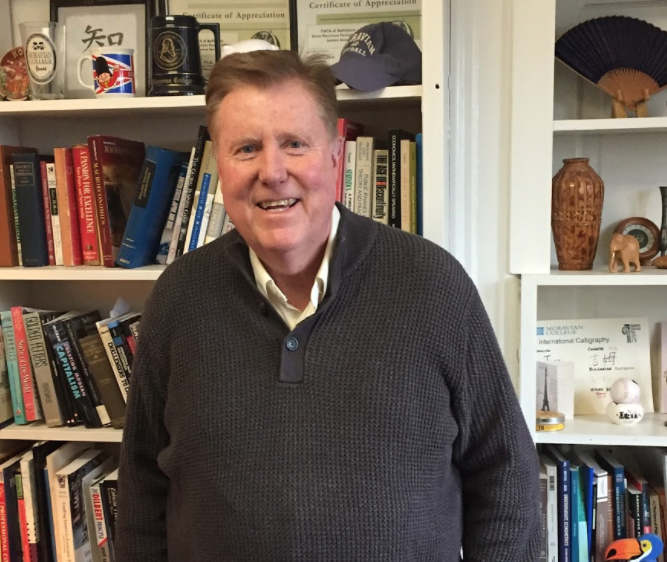
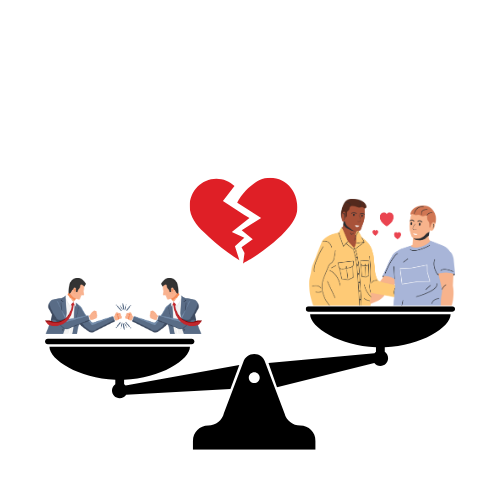


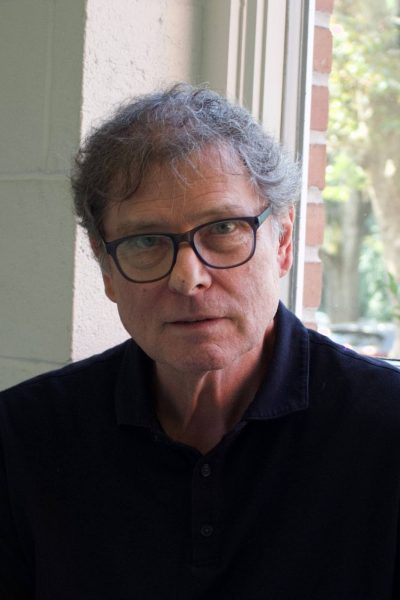

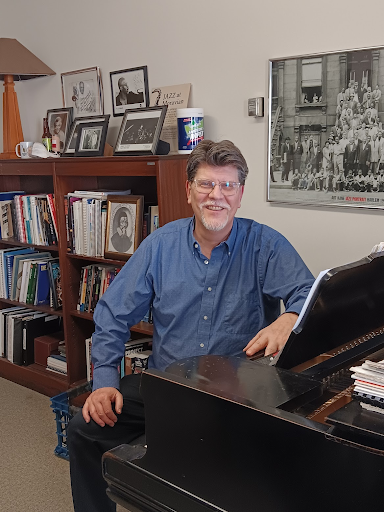
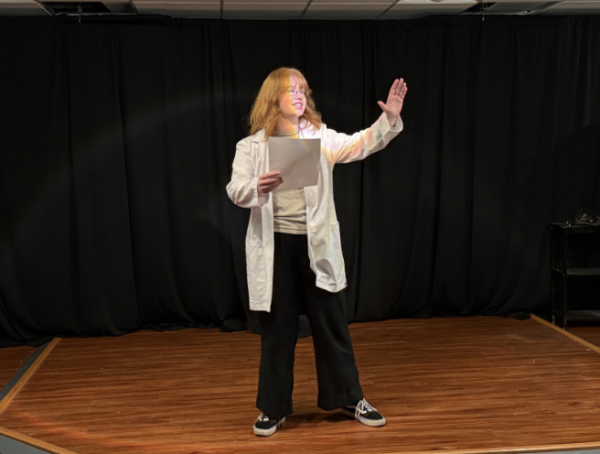
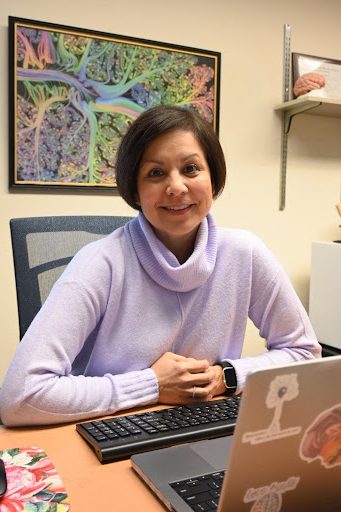
Steven G. Rhoads, CPA • Mar 16, 2018 at 8:19 pm
Very nice interview young Mr. Rhoads. I had the privilege of taking an Economics course with Dr. West in the summer of 1996. I will never forget the course in Collier Hall of Science. What I had chosen as an “easy” class to complete my MBA, was one of the most enlightening courses I had the honor to participate in at Moravian.
Margaret Snyder • Mar 2, 2018 at 9:17 am
Congratulatins on an excellent interview, Mr. Rhoads.
Nathaniel Rhoads • Mar 14, 2018 at 10:57 am
Thank you for the feedback! I’m glad you enjoyed it!